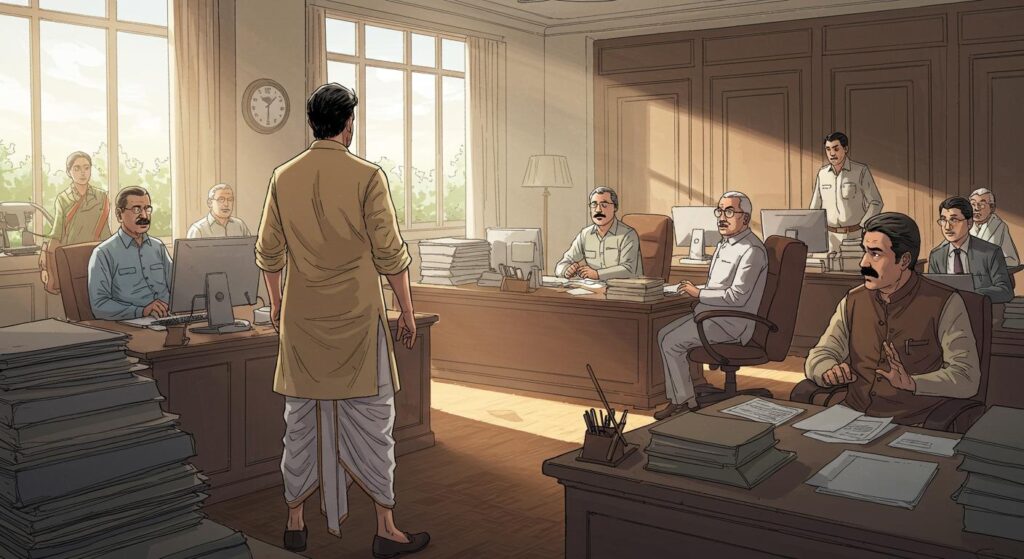Let’s take a moment, if we can, to marvel at the natural life cycle of a modern “controversy.” First, a children’s entertainer posts messages about not wanting kids to die in war. Next, a social media watchdog group names her “Antisemite of the Week.” Finally, America’s paper of record contacts said entertainer by email, solemnly requesting comment on whether she’s receiving cash payments from the leadership of Hamas. Just another regular Wednesday in 2025.
Ms. Rachel and the Great Hamas Funding Allegation
Rachel Griffin-Accurso, universally known to a generation of sleep-deprived parents as Ms. Rachel, made the radical choice to voice sympathy for suffering children—specifically, those facing unimaginable violence and deprivation in Gaza. According to Defector, her recent posts have included everything from supporting aid organizations combating malnutrition in Gaza and famine in Sudan to sharing photos of her visit with a 3-year-old double amputee. Apparently, these acts of advocacy are enough to vault a toddler music personality into the crosshairs of the culture war.
But the plot thickens, as Defector highlights. A pro-Israel advocacy group called StopAntisemitism—whose founder, Liora Reznichenko (a.k.a. Liora Rez), gets a curious veil of anonymity in mainstream reporting—circulated allegations that Ms. Rachel’s social media posts were “filled with misinformation from Hamas.” The group further claims that her posts about Israeli children only appeared after “widespread public backlash,” and that she never condemned Hamas explicitly enough.
Defector notes that this accusation was treated as serious enough by the New York Times to prompt coverage and a direct inquiry. The Times, in an article by Marc Tracy, specifically referenced the StopAntisemitism letter that called on officials to investigate whether Ms. Rachel was being funded by Hamas. In response, Ms. Rachel issued a categorical denial through email correspondence with the Times: “This accusation is not only absurd, it’s patently false.”
Journalism, Outdated House Style Edition
Defector’s reporting draws attention to what happens when outdated journalistic conventions meet the digital fever swamp. The Times accepted StopAntisemitism’s allegations as a springboard for an entire article, omitting even basic details about the organization’s leadership and funding, though Defector underscores how this information is not only public but was directly relevant to understanding the accuser’s motivations. For instance, Defector describes how the group has ties to the Adam and Gila Milstein Family Foundation and the Merona Leadership Foundation, including reported payments in 2022—details conspicuously missing from the Times piece.
Within the same article, Tracy remarks on how supporters are “accusing her of treating Palestinian children with more sympathy than Israeli ones,” a framing that Defector critiques for omitting proportional context. While Defector states that over 15,000 Palestinian children have died since October 2023, the Times article does not include any fatality statistics—something that would likely put Ms. Rachel’s focus in a rather different light.
Meanwhile, the HuffPost live updates blog supplies the background that, as Defector notes, often goes unremarked upon in such profiles: outbreaks of famine, children dying and displaced, and ongoing global condemnation of Israel’s actions in Gaza from human rights groups and international officials. HuffPost reports that Ms. Rachel has consistently used her platform to honor the children killed in Gaza, and to advocate for child welfare regardless of nationality. In an interview shared by HuffPost, Ms. Rachel remarked, “I think it’s sad to take someone’s dedication and love for all children and try and make that wrong … It’s wonderful to be an advocate for all children.”
Is it possible for a conversation about the well-being of children to exist in an environment where advocacy is immediately interpreted as suspicious? At what point does the seriousness of an accusation demand more scrutiny of its origins than the actual concern being discussed?
The Absurdity Dialed Up
Defector describes the scene with suitable dryness: A children’s entertainer who sings with Elmo is prompted by the Times to answer a question about whether she is secretly bankrolled by Hamas. The Times article is headlined, “Why Tot Celebrity Ms. Rachel Waded Into the Gaza Debate”—as if using one’s large platform to call for children not to be harmed was a conscious foray into geopolitics, rather than the most literal application of her brand’s mission statement.
What stands out, as Defector underlines, isn’t just the wild nature of the accusation—it’s the way context is smoothed out or omitted. The Times refrains from naming the individual running StopAntisemitism or disclosing the group’s financial backers, even though this information is readily available and, as Defector documents, directly relevant to assessing the claim’s credibility.
Throughout all this, the HuffPost updates keep cataloguing the realities often left behind: from inadequate humanitarian access and gunfire at aid points in Gaza, to international outrage over the toll on children and journalists. HuffPost shares Ms. Rachel’s words on Democracy Now!: “These children mattered. They’re not just numbers, they’re 18,000 precious children, and they were everyone’s universe, as a Jewish text says. They were somebody’s whole world and somebody’s whole universe.”
It seems the story isn’t about the children after all, but about the Acceptable Levels of Outrage™ permitted for a children’s entertainer, monitored by pressure groups and enshrined for the record by the nation’s most trusted masthead.
Who Gets to Care Out Loud?
This whole Ms. Rachel saga, presented in both Defector and HuffPost’s coverage, is almost tailor-made for a “you can’t make this up” headline. Yet the seriousness with which institutions respond to such allegations—posing them without context or skepticism—reveals something strange about this moment. When a music educator advocates for traumatized children, the primary questions become: Are you posting the right ratio of sympathy? Have you condemned the correct sets of villains? And, inexplicably, can you prove your funding isn’t coming from a group everyone reading this already recognizes as an unlikely conduit for toddler singalongs?
Ms. Rachel, for her part, keeps it about the children themselves. As HuffPost documents, she centers those killed and their surviving peers: “You have great ideas and a brilliant mind and a wonderful heart, and you’re so kind … and I adore you.” Her critics, meanwhile, search for subtext and conspiracy, rarely pausing to ask whether outrage could sometimes be more about policing emotional responses than protecting real children.
Is this to be our new standard for public life? When someone calls for compassion, must we first demand financial records before allowing them to care out loud?
We may not know what tomorrow’s front page will bring, but it’s telling that, in 2025, the toughest grilled interview question posed to the woman teaching the ABCs is, “Are you funded by Hamas?” Absurdity, it seems, has a reserved seat at the table. And yet—maybe, just maybe, the smallest children still know what kindness looks like, even when the rest of us insist on debating it.







